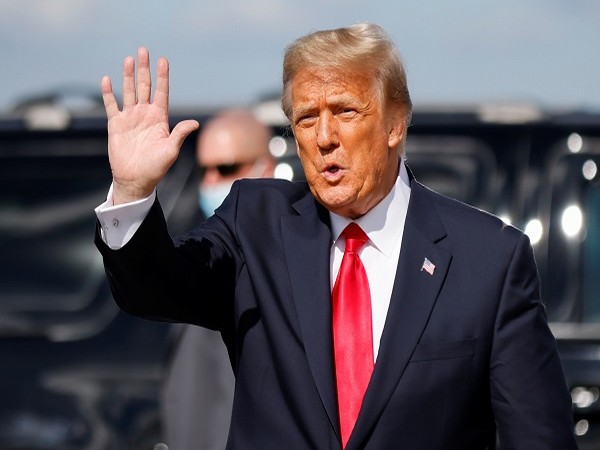Foreign relations experts have warned that US Republican presidential nominee Donald Trump, if brought to power, could weaken alliances and undermine deterrence against China, further posing risks for Taiwan, reported the Central News agency of Taiwan.
Trump will be facing President Joe Biden in November if Biden withstands pressure to step aside due to his age. However, their vastly different foreign policies have significant implications for Taiwan.
Jacques deLisle, director of the University of Pennsylvania’s Centre for the Study of Contemporary China, said that Biden’s victory would likely mean “a great deal of continuity” in Taiwan policy.
“A Trump victory, however, would be unpredictable, with Republican lawmakers likely following Trump’s lead, posing risks for Taiwan,” he was quoted as saying by CNA Taiwan.
“One risk is Trump’s “transactional approach” to diplomacy,” he said, adding that the former president’s demand for Taiwan to pay more for American defence, shows his stance towards NATO.
While Taiwan generally does buy weapons, he said that Trump believes Taiwan should “pay market prices.”
DeLisle further argued that Trump does not value American commitments to allies.
He added that regardless of Trump’s view on Taiwan’s security, he would likely weaken US relationships with Japan, South Korea and other allies, affecting cooperation to deter China.
Since taking office in 2021, Biden has repeatedly stated his willingness to defend Taiwan, and in a June interview with Time, he did not rule out military action.
The US, in its bilateral and multilateral meetings with allies, has often emphasised the importance of peace and stability in the Taiwan Strait.
David Sacks, a fellow at the Council on Foreign Relations, wrote in “Taiwan’s Trump Conundrum,” published on Friday, that a Trump victory would present allies with a president who views diplomacy as transactional, CNA Taiwan reported.
“This dilemma will be keenly felt in Taiwan,” he said.
Sacks added that Trump was very popular in Taiwan before leaving office in 2021, marking the closest US-Taipei relations since Washington switched diplomatic recognition to Beijing in 1979.
However, Trump’s recent comments on Taiwan have put doubt on whether this support would continue if he were re-elected in November presidential elections.
Sacks observed that Taiwan had downplayed Trump’s remarks by pointing to bipartisan support in the US and the emphasis on Taiwan’s importance by former Trump administration officials, according to CNA Taiwan.
While this is true, the president has significant autonomy in foreign policy, and it may be unrealistic to expect Congress to restrain Trump’s actions, Sacks said.
Meanwhile, some believe that the US should fully deter China from attacking Taiwan and, if deterrence fails, defend Taiwan due to its strategic location, economic significance and democratic governance.
These arguments further aim to prevent negative impacts on the international order and US alliances. However, such points may not convince Trump, as Sacks mentioned.
He further noted that Trump is sceptical of US alliances, viewing them as “free riders.” If the US does not defend Taiwan, it could signal to allies that they must take responsibility for their own security, which he believes would ultimately benefit America.
Jacques deLisle, director of the University of Pennsylvania’s Centre for the Study of Contemporary China, further said that Trump’s claim of Taiwan stealing the American semiconductor industry, was a “misunderstanding.”.
“Chip design and development are largely based in the US, while manufacturers like Taiwan Semiconductor Manufacturing Co. are in Taiwan. That’s a cooperative, not a competitive relationship,” deLisle said.
Sacks further said that Trump’s comments on Taiwan are “fully consistent with his worldview” and that his view is “unlikely to change.”-ANI


